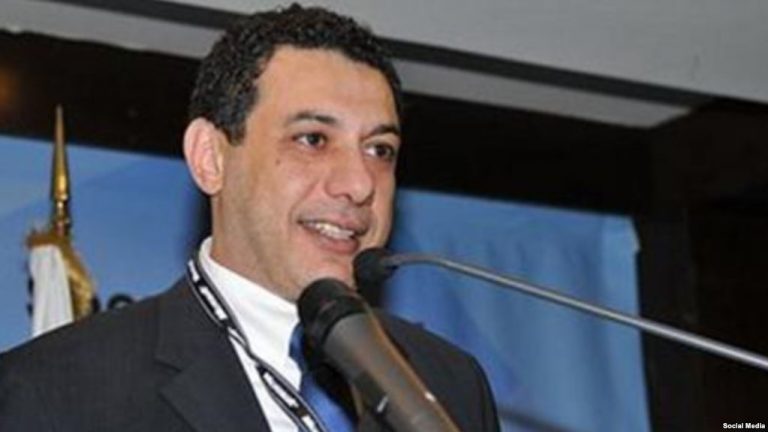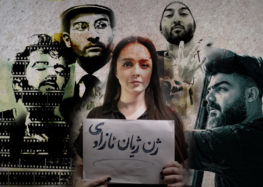Authorities Ignore Potential Cancer Diagnosis For US Resident Nizar Zakka, Deny Him Medical Care

“Evin Prison officials are using medicine as a weapon”
US permanent resident Nizar Zakka is being denied medical attention in Evin Prison despite being told by his doctor that he may be suffering from colon cancer, his US-based lawyer told the Center for Human Rights in Iran (CHRI).
Zakka’s attorney, Jason Poblete, also told CHRI that Zakka and his American cellmate, Xiyue Wang, believe prison staff members are drugging their food to make them sleepy.
“A few weeks ago, Nizar was diagnosed by an Iranian doctor hired by the family with colon cancer,” Poblete told CHRI on February 5, 2018. “He needs a colonoscopy to confirm the diagnosis, but the Iranian government will not allow it.”
“Before France’s President Macron goes to Iran, indeed any foreign leader goes to Iran, they should demand the release of Nizar Zakka and all unjustly detained persons from all affected nations,” said Poblete.
The French president is expected to visit Iran in early March.
Political prisoners in Iran, including elderly inmates, are singled out for harsh treatment, which often includes denial of medical care. The threat of withheld medical care has also been used as an intimidation tool against prisoners who have challenged the authorities or filed complaints.
In 2016, political prisoner Omid Kokabee was diagnosed with advanced kidney cancer after years of repeatedly being denied treatment for his symptoms. Former political prisoner Alireza Rajaee, a journalist, lost part of his face to sinus cancer that he says was left untreated while he was in Evin Prison.
“I just learned today that Nizar was taken to the Evin clinic for oxygen because he may have bronchitis or some other ailment that is impeding his ability to breath easily. However, no doctors or dentists. He was also coughing up blood,” Poblete told CHRI.
Zakka, a Lebanese-born information technology expert and internet freedom advocate, was arrested by the Islamic Revolutionary Guard Corps’ (IRGC) Intelligence Organization in September 2015 in Iran while visiting as an official guest of the government to attend a conference on women and sustainable development.
In September 2016, Zakka was issued a 10-year prison sentence and $4.2 million fine for unspecified espionage charges. An Appeals Court upheld the sentence in August 2016.
“We do not know how exactly or how many times the Iranians have placed substances in his food, but he believes it has happened many times before,” Poblete told CHRI. “This most recent incident, both he and Mr. Wang were extremely tired, for several days they slept after eating the same thing.”
Poblete added that the authorities are refusing to give Zakka warm clothing sent by his family for the winter months.
“The Iranians have refused deliveries of gloves, hats, or other warm clothing that the family wants to deliver to him,” he said. “Nizar has not seen the sun for months.”
“In addition to robbing him of his liberty, they are slowly destroying his health,” added Poblete. “Nizar is extremely ill and requires advanced medical care outside of Iran; he should be released immediately. Evin Prison officials are using medicine as a weapon; their cruelty knows no bounds.”
Zakka’s cellmate, Xiyue Wang, is a Princeton University PhD student who was conducting research at a state archive in Tehran when he was arrested in August 2016. He was sentenced to 10 years imprisonment in July 2017. An Appeals Court upheld the sentence in August 2017.
At least 12 dual and foreign nationals and foreign permanent residents are being held in Iranian prisons. In November 2017, Reuters reported that at least 30 dual nationals had been arrested by the IRGC since the signing of the nuclear deal in July 2015.






